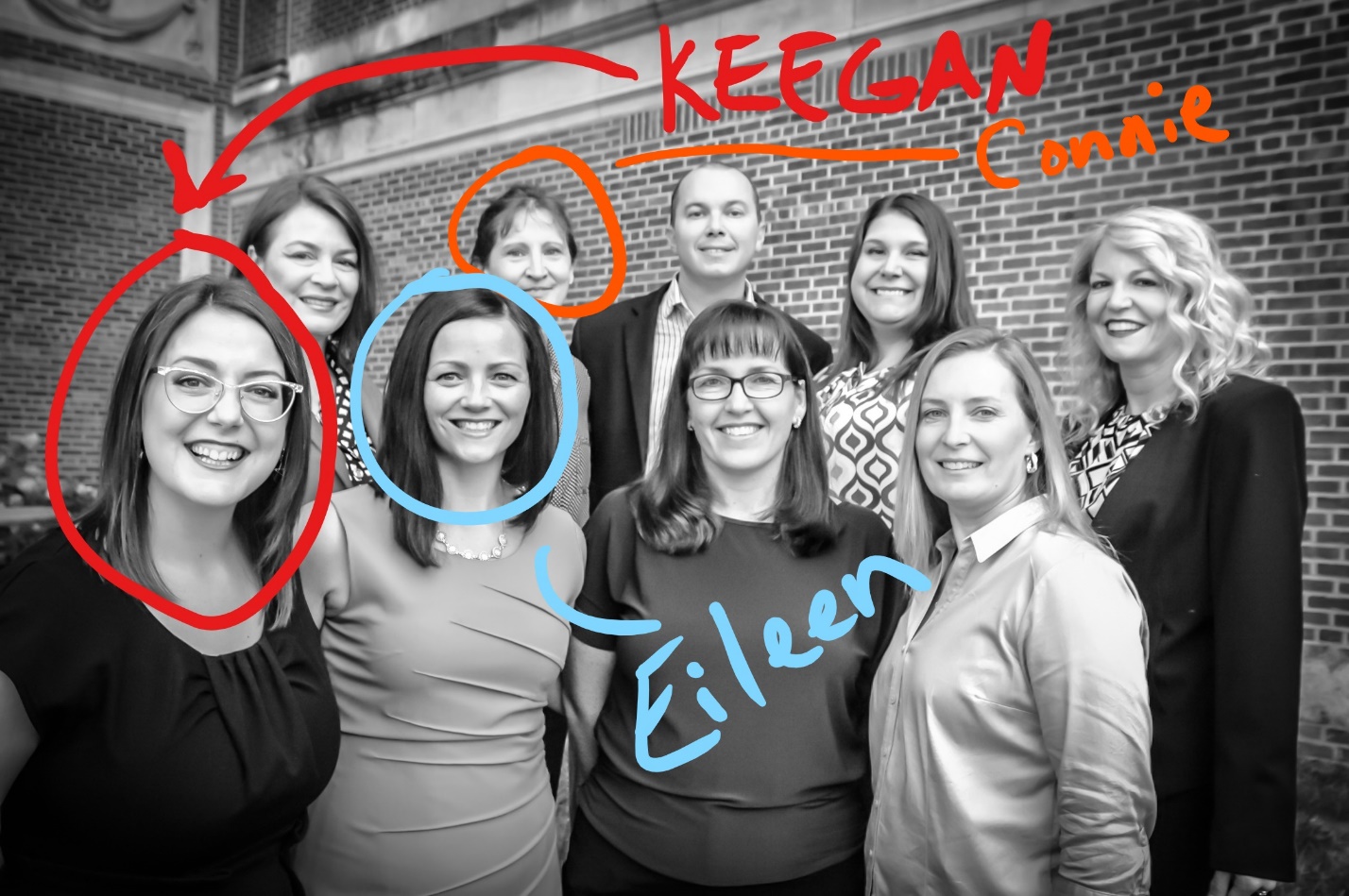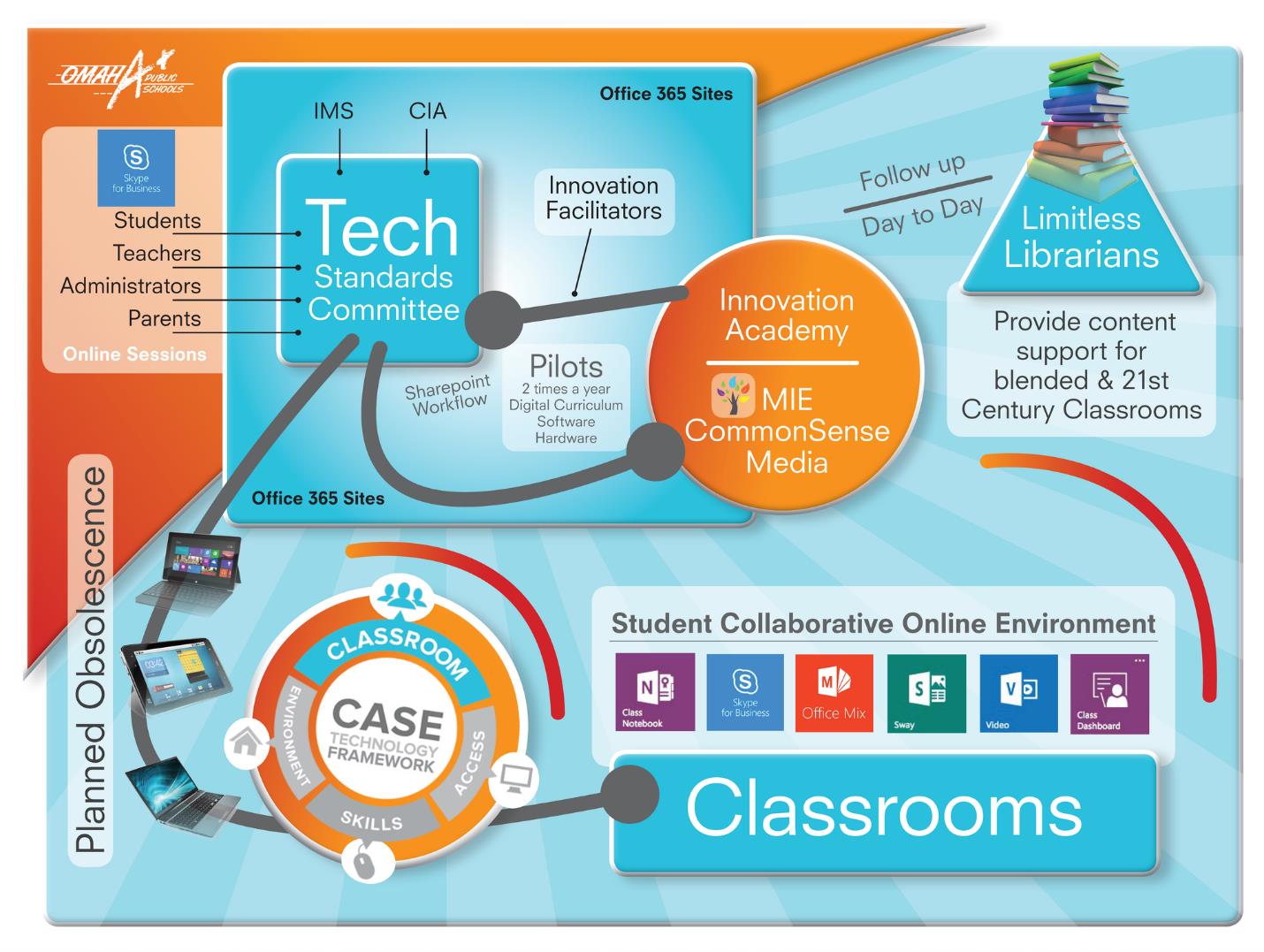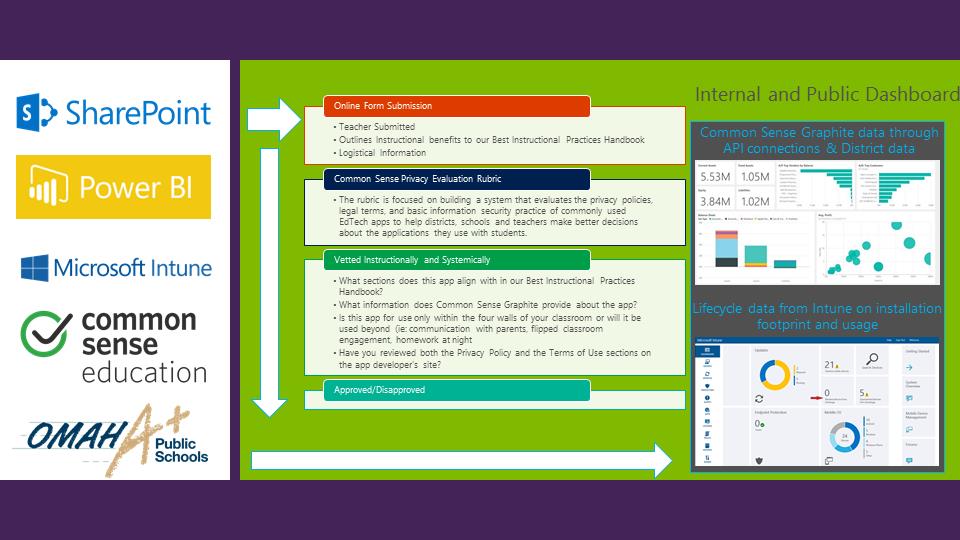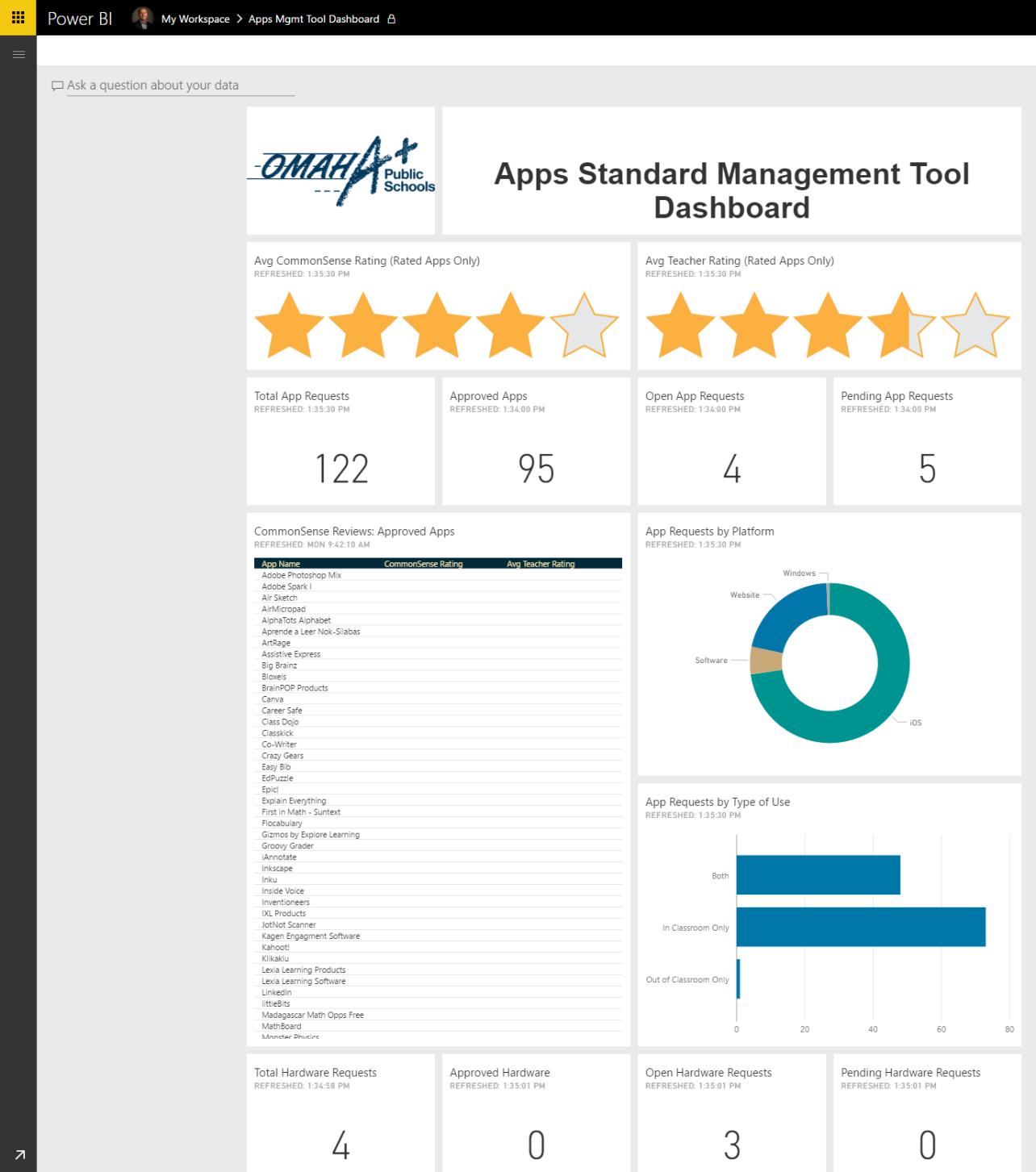At the core of every change initiative is the desire to breathe new life into the organization―to revitalize ways of thinking, behaving, and working. Nearly four years ago, Mr. Mark A. Evans was brought in as Superintendent of Omaha Public Schools (OPS) to institute change processes that resulted from a needs assessment.
This led to the creation of a five-year strategic plan as well as passing the largest bond issue in Nebraska history. Technology was set as a priority because the district hadn’t focused in this area previously. Professional development and planned obsolescence for devices were outlined in the strategic plan as prioritized strategies.
To help make the change as smooth as possible, OPS placed an emphasis on digital citizenship through professional learning, as well as the development of a new device deployment strategy and an innovative App Approval Tool.
Here’s how we did it.
The Position Shift
For nearly a decade, the district has partnered with Common Sense Media to support a half-time position funded through the Sherwood Foundation, a philanthropic organization, that provided some form of digital citizenship functions for the district and the state.
To meet the strategic plan’s priorities, the district decided that the position of lead teacher of digital citizenship would move from the Curriculum and Instruction Support to Information Management Services. This move would also expand the position to full-time and house it under the instructional technology umbrella.
The importance of this position to our initiatives was so great that it is also the only position in instructional technology that I personally supervise. It is a great fit for the district, since we were beginning to introduce 21st century skills into our Best Instructional Practices Handbook. Keegan Korf was selected as lead teacher and has done a remarkable job at defining much of this plan moving forward.

The Vehicle
In October 2014, the district implemented Microsoft Office 365 as a collaboration platform and in the process created a unique relationship in their fast-track and early-adopter programs. Through this relationship, Innovation Facilitator Eileen Heller (see above) and User Support Coordinator Connie Wickham (also above) worked on creating an Innovation Academy with initial cohort of around 100 educators throughout the district. In the second year, the cohort added another 100 educators. The cohort was further enhanced by leadership from Wendy Loewenstein.
(Next page: The Outcome and App Approval Tool)
At the start of this year, due to the addition of Keegan’s role, as well as this year’s focus on devices for secondary students, we wanted to get to depth of knowledge of digital citizenship. The challenge was brought to Keegan to have the entire district completely Common Sense Media-certified by using the Innovation Academy program as shown below.

It was important to become purposeful in our deployment of devices in the district. Before last year, the district had never had a planned obsolescence cycle for devices. We had some questions to ask our schools and ourselves:
- What is the complete range of learning activities in which students will engage?
- What content, applications, and resources (e.g., peripherals) will students require?
- How will they include digital literacy throughout classroom practice?
- Does our infrastructure support our vision?
- What strategies will we use to communicate with stakeholders, obtain their input, and achieve their buy-in?
- How will funding cycles and traditional budget allocation models impact our deployment plan?
It boiled down to interviewing leaders at each school to define what their learning environments looked like and where they wanted to go with them. Schools were expected to include this change in their school improvement plans. This allowed us to define some requirements.
As a part of these conversations, Keegan was included to introduce and begin to invest time and resources into these school improvement plans. We documented the journey with each school in OneNote Notebooks, and talked to teachers and students (from the Students of Voice Committee) about what they needed. We did not ask what device they wanted.
The Outcome
We could not be happier with the outcomes so far. This year we were one of three districts nationwide to be selected as a Common Sense Showcase District.
Also, through meshing this strategy of intertwining digital citizenship with our planned obsolescence of device deployment, we have discovered a need. With the introduction of the App Store across many types of platforms, coupled with the push to cloud-based solutions, our data is becoming fragmented across multiple systems. This is causing many districts throughout the nation to reflect and adjust their student data privacy workflows to meet the demand.
We wanted to take this one step further with the introduction of an App Approval Tool. This tool, developed through our relationship with Microsoft and Common Sense Media, allows applications, websites, and hardware to be introduced by teachers.
The newly entered solutions flow through a series of privacy rubrics as well as the vetting of the application or hardware (see below).

The result is a solution that gives clarity and transparency to our life-cycle adoption of hardware and software, tied to instructional strategies. This produces data that can help drive our decisions when a solution is working well and when we need to find a replacement aligned to a particular instructional use.

Though this tool is still in its infancy, we hope to share this tool and many other best practices as we develop our policies and practices around this adoption life-cycle. The development of the tool should be complete by February, pushing both existing solutions and new solutions through as fast as our Privacy Committee and Tech Standards Committee can work. In addition, Keegan and I will be presenting this tool at ISTE this summer. Come and join us!
- 4 ways to encourage play in education - April 25, 2024
- CoSN IT Leader Spotlight: Lisa Higgins - April 25, 2024
- It’s time to pay student teachers - April 25, 2024

